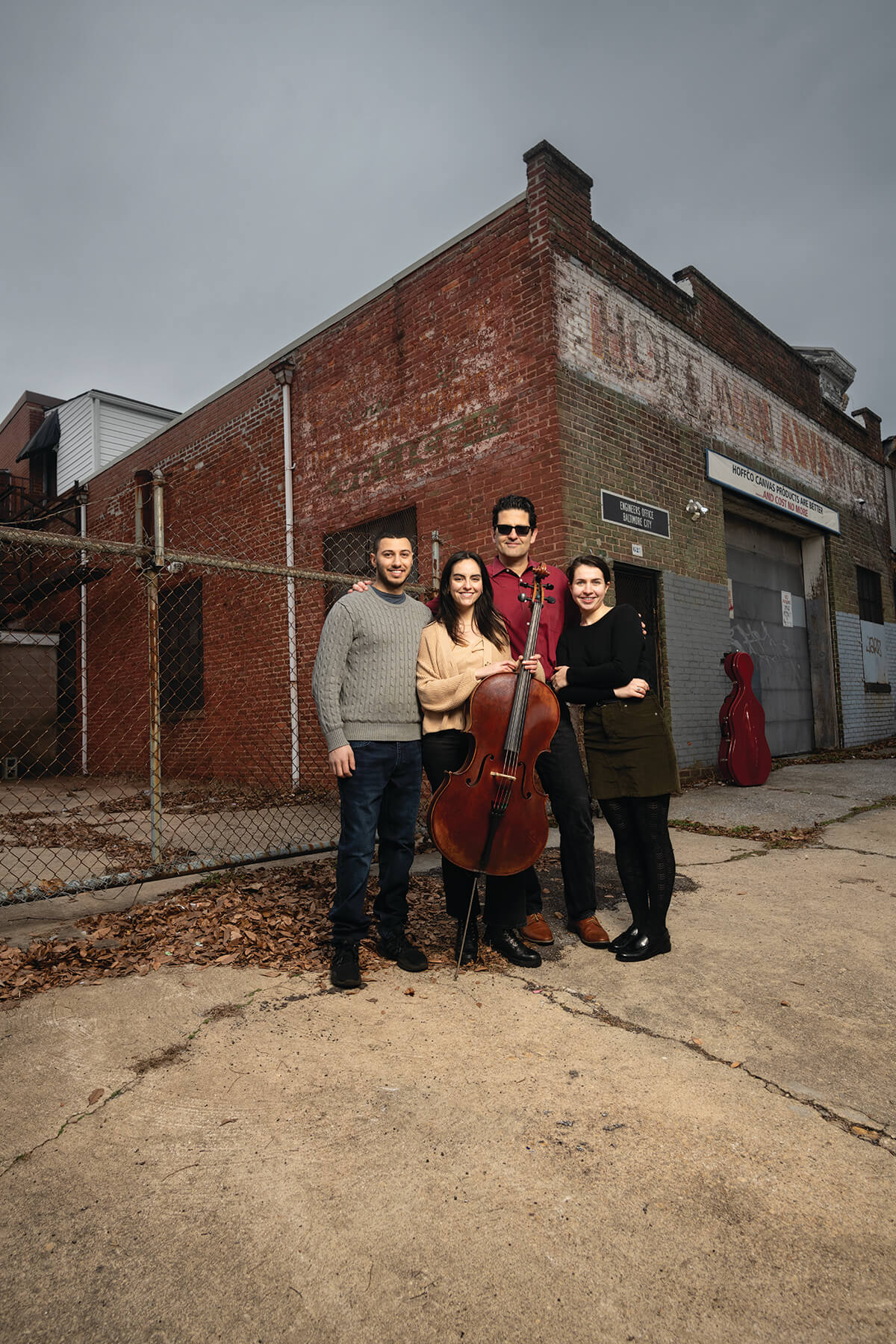Arts & Culture
The Mount Vernon Virtuosi is Much More Than a Chamber Orchestra
How Peabody professor Amit Peled is changing the community through classical music—while also working to keep his students in town after graduation.

Amit Peled, a cello professor at the Peabody Institute, believes two things: That concerts should be free. And that musicians should be well paid for their work.
“Those don’t always go together,” he admits with a wry laugh.
Indeed, the lack of funds to pay musicians locally is one of the reasons why Baltimore often can’t retain its talented Peabody players. “We get them to a certain level in college, and they’re really outstanding,” says Peled. “And then they leave.”
So in 2018, he created the Mount Vernon Virtuosi chamber orchestra with the hope of keeping Peabody students in town after graduation. Through donations, he was able to pay young graduates to perform around town and also offer the community free concerts in nontraditional spaces, like churches, hospitals, and the Enoch Pratt Free Library, with the playing being of the highest caliber—both small ensembles and a larger chamber orchestra—and Peled, pictured above alongside three Virtuosi musicians, serving as conductor, mentor, and performer.
And then the pandemic hit, changing everything. As a highly sought-after concertizing musician, Peled was used to going on tour after the Peabody semester ended. So much of what he knew of Baltimore stopped and started at the conservatory.
“I got stuck here for the first time in my life,” he says. “I really started to feel this is my city…I want to do more than just present concerts for free. I want to actually make a change through classical music.”
In short order, the Mount Vernon Virtuosi evolved from an ensemble that gave concerts into one that was determined to make a real difference. Through their “Every Child Deserves a Voice” program, they started giving lessons for free twice a week at the KIPP Harmony Academy magnet school in Southwest Baltimore. They began doing story hour at the Pratt, where players would read a children’s book and perform related music.
“I want to actually make a change through classical music.”
But his most radical idea was the Music House, which he envisions as a place where young musicians (mostly but not exclusively Peabody graduates) could live for free, rehearse, and fully integrate themselves into the community.
Peled approached Charlie Duff, of the nonprofit development firm Jubilee Baltimore, and asked for help. Duff in turn showed Peled some potential spaces—two in Reservoir Hill, one in Bolton Hill. Then he mentioned an old warehouse in East Baltimore Midway.
“You won’t like it,” said Duff. But it was, in fact, exactly what Peled was hoping for: an underserved neighborhood where the musicians could embed themselves. He envisions people walking by, hearing the music, maybe coming inside to listen for a bit.
“This is an area where most people have never seen a violin, let alone a violinist walking from their home to get coffee,” says Peled.
Duff, whose Jubilee Baltimore is invested in improving local neighborhoods, was thrilled.
“We have found that artists are quite good for neighborhood revitalization,” he says. “It’s known as the Soho Effect.”
Peled credits growing up in Israel on a kibbutz with fueling his passion for public service. He said his family was pretty poor and never could’ve afforded cello lessons without the support from his community. To that end, there is also a food pantry across the street from the Music House where Peled already volunteers once a week.
Peled is also an extremely good salesman and passionate about his project—so much so that Pierce Flanigan, a contractor who is investing in the same neighborhood, made a 10-year commitment to let him use the warehouse for free. There’s still a lot of money to be raised before the players can move in—Peled estimates that the Music House will be fully operational in five years—but between the teaching, the volunteer work, and the concertizing, the Mount Vernon Virtuosi is already fulfilling a lot of its mission.
“So far it’s been amazing for me and for my musicians,” says Peled. “And I’m not stopping. This is my calling.”